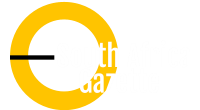International cooperation is most urgent to achieve and sustain the goal of media and information literacy for all, says Basic Education Minister Angie Motshekga.
Motshekga was addressing the opening of the 10th United Nations Educational, Scientific and Cultural Organization (UNESCO) Global Media and Information Literacy Week hosted by South Africa from Monday until 29 October 2021.
This year’s MIL week is hosted under the theme “Media and information literacy for the public good.”
“Together, we must respond to the call of the United Nations (UN) Resolution A/RES/75/267 for media and information literacy to be an urgent and imperative public matter,” Motshekga, who addressed the opening of the literacy week on behalf of President Cyril Ramaphosa, said.
Motshekga said that South Africa is proud to celebrate this historic moment as the first country in Sub-Saharan Africa to host the Global Media and Information Literacy Week.
“Here is an important milestone for promoting the culture of media and information literacy in Sub-Saharan Africa and Africa, in general. We must change the trend of low take-up of media and information literacy in education in African countries.”
She said that media and information literacy can support the strategic approach of building an inclusive and resilient African society and connecting the African continent with the rest of the world.
South Africa stands alongside the global community not only to strengthen the foundations of media and information literacy, but also to contribute to the achievement of Sustainable Development Goals beyond the global 2030 agenda, the Digital Transformation Strategy for Africa (2020-2030) and the Agenda 2063: The Africa We Want.
“Media and information literacy and digital skills should be incorporated in the actions connected to the Digital Transformation Strategy for Africa (2020-2030) as a driver for human capability and self- empowerment,” she said.
She added that it is fitting that the Nairobi Declaration and Call to Action on Bridging Continental and Global Education Frameworks for Africa recognises the importance of media and information literacy.
“Indeed, media and information literacy can provide the necessary skills, competencies, and attitudes that support digital skills, digital hygiene, critical thinking, and intercultural competencies.”
She called on everyone to build the competencies of African citizenry as agents of change by strengthening media and information literacy in lifelong learning, online, and offline spaces at all levels.
Dealing with global misinformation
Motshekga said that the global threat of misinformation is more pronounced today as the world battles the anti-vax lobby in the face of the devastation occasioned by the COVID-19 pandemic.
She has called on the conference to respond thoughtfully to the anti-vax lobby and misinformation entrepreneurs.
“As part of the international community, we are proud of the media and information literacy progress made in recent years. Yet, we are now confronted by a new threat of global misinformation via social networking platforms,” Motshekga said.
She said that it is an insidious threat that requires ingenuity in law-making, public awareness and transatlantic efforts to reverse the emerging trends of the misinformation entrepreneurs gaining the upper hand.
“We must consider new media and information literacy programmes to help people understand the consequences of creating and sharing false and misleading content,” she said.
Source: South African Government News Agency
